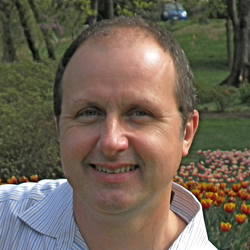Timothy J. Nelson
Drawing and sketching were my first forms of creative expression. Initially, I perceived writing as something you did for homework and other school assignments. In college, I started seeing writing as an important extension of analysis and thinking. I write to make sense of the world, its complexities, its beauty, and its harsh realities. Writing is an act of humanity, a desire to connect to others. Some writers use fiction, others use nonfiction narratives, or poetry. Some use multiple forms of expression. Henry Miller and Kerouac liked to paint. Artists want to process their experience of the world.
After almost twenty years of writing, with some success as a journalist and poet, I continue to struggle with finding the time to write, or if what I have to say is worthy of people’s time. So what works for me is that I write as if my life depends on it. It does. It is a “message in a bottle,” an act of hope. Some days it feels like an act of desperation – a scream, yelling from a place that is drowned out by the din of technology, traffic, and the congestion of everyday life. Writers reflect on all of this. Again, they process experience for themselves and, ultimately, for others who seek their wisdom.
As Mark Twain said, we “all contain music and truth,” so writers reveal this truth to us. This is especially meaningful for people that know they have these qualities but cannot express them fully. Why else would we recommend books to others? It’s as if we’re saying, “Read this – this author gets at some truth I can relate to. Maybe you’ll relate, too.” As writers, we don’t have to be the next Shakespeare, Austen, Dickinson, Morrison, or Stephen King; we have to be ourselves. This is an act of courage. So writers are willing to risk comfort and practicality to get at this. The “great works” or “great books” are the ones that appeal to us at that moment in time. These works inspire us to want to inspire others. We learn from the masters on the way to mastery.
I want the courage to confront the truth of human experience. For me, bravery is living the writer’s life, this pursuit of knowledge and truth. The purpose is to share this with others, in my own way. Writers learn from our mistakes and take new risks, discover new techniques that help us reveal our ideas, our truth. We have to find the way, write our way to it. Along the way, reading can help us find the way.
Just as painters choose to paint to discover truth, using a chosen form and technique, I choose to write. I want to live a life that is contemplative and exemplifies the pursuit of truth. To me this is a type of spiritual quest, living my life, then reflecting, thinking, and writing about my experience. If, as the Tao indicates, the truth is within, a writer is open to that and listens, lets it out. Some may call it the Muse. Either way, this requires patience, time, enormous effort, and persistent courage. All I can offer is my self, my work. Perhaps it will help others discover their meaning and their truth.
Now is the time to write. What truth shall we reveal?
 Tim J. Nelson earned a masters in professional writing from Towson University. In addition to freelance writing, he teaches college composition in Maryland. Tim contributes reviews to publications such as PopMatters.com. The Sacramento Free Press published Tim’s homage to Kerouac, “A San Fran Serious,” as part of its Poems-for-All series. He contributed poems to Poets’ Ink, a Maryland State Poetry & Literary Society broadside; Grub Street; and the online journal, Yes, Poetry. Visit timjnelson.com.
Tim J. Nelson earned a masters in professional writing from Towson University. In addition to freelance writing, he teaches college composition in Maryland. Tim contributes reviews to publications such as PopMatters.com. The Sacramento Free Press published Tim’s homage to Kerouac, “A San Fran Serious,” as part of its Poems-for-All series. He contributed poems to Poets’ Ink, a Maryland State Poetry & Literary Society broadside; Grub Street; and the online journal, Yes, Poetry. Visit timjnelson.com.